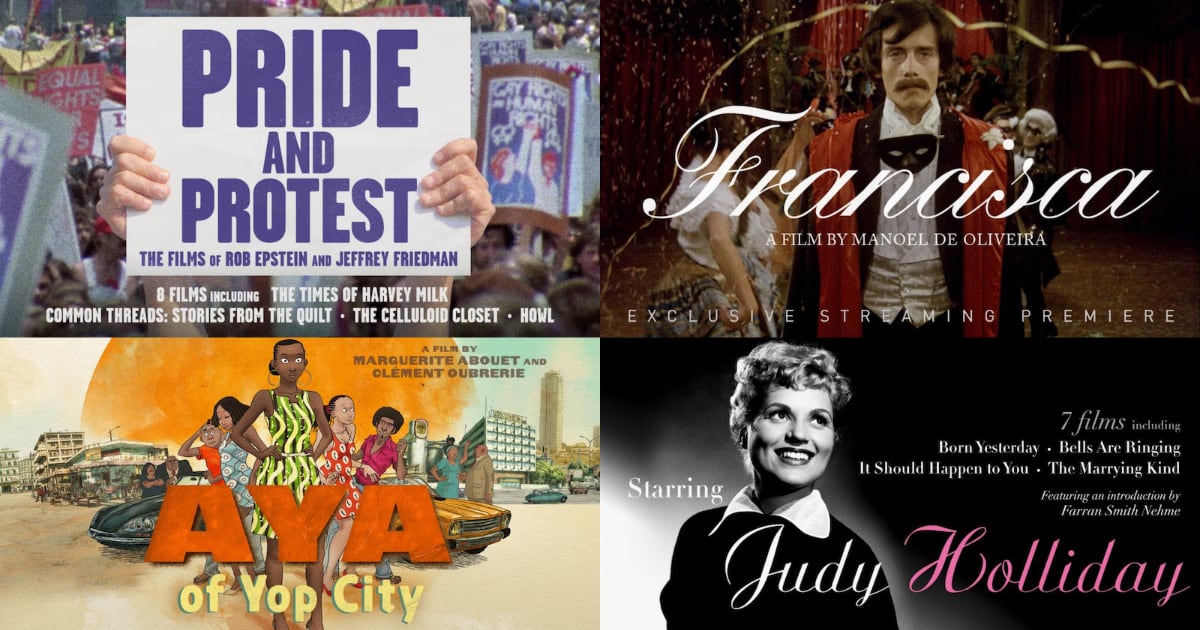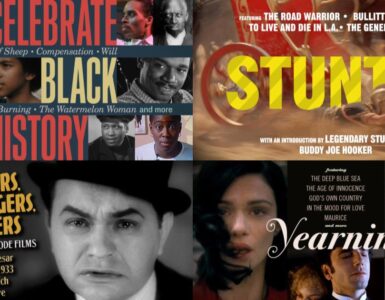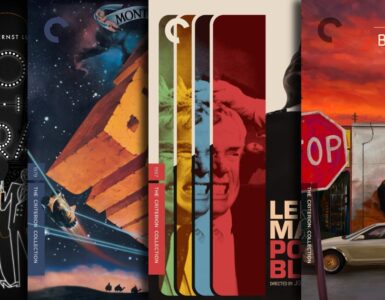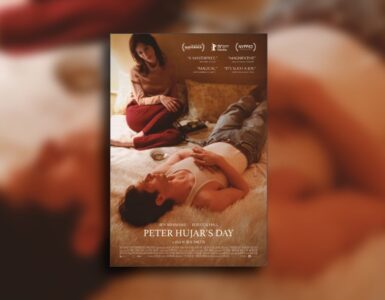Each month, the programmers at the Criterion Channel produce incredible line-ups for their subscribers. For June, the Channel will feature films from Manoel de Oliveira, Luis García Berlanga, Rob Epstein and Jeffrey Friedman, and more!
Below you’ll find the programming schedule for the month, along with a complete list of titles that Criterion has in store for us. Don’t forget to check the Criterion Channel’s main page regularly though, as they occasionally will drop surprises that aren’t included in the official press release.
Don’t subscribe yet? Start a 14-day free trial
FEATURED SERIES
Premiering June 1
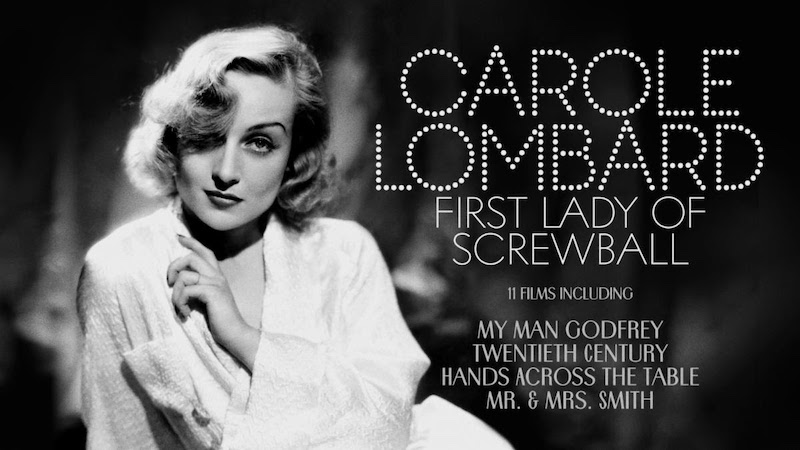
Carole Lombard: First Lady of Screwball
Carole Lombard was already a Hollywood veteran when a whirlwind comedic revolution took Tinseltown by storm in the 1930s. The genre was screwball, and it fit Lombard like a glove. In definitive classics of the form like Hands Across the Table, Twentieth Century, My Man Godfrey, and Nothing Sacred, Lombard lit up the screen with her vivacious energy and brilliant comic timing (it’s no surprise that Lombard, who was married first to William Powell, then Clark Gable, was an inveterate prankster offscreen, with a famously foul mouth). Though her tragic death in a plane crash at age thirty-three—just after the completion of her final film, Ernst Lubitsch’s audacious anti-Nazi satire To Be or Not Be—robbed Hollywood of one of its brightest stars, Lombard endures thanks to her rare combination of chic elegance and infectious irreverence.
- No Man of Her Own, Wesley Ruggles, 1932
- Virtue, Edward Buzzell, 1932
- Twentieth Century, Howard Hawks, 1934*
- Hands Across the Table, Mitchell Leisen, 1935
- My Man Godfrey, Gregory La Cava, 1936
- Nothing Sacred, William A. Wellman, 1937
- True Confession, Wesley Ruggles, 1937
- In Name Only, John Cromwell, 1939
- Vigil in the Night, George Stevens, 1940
- Mr. & Mrs. Smith, Alfred Hitchcock, 1941
- To Be or Not to Be, Ernst Lubitsch, 1942
*Available July 1

Adventures in Moviegoing with Justin Simien
What would the world look like if Charles Burnett and Kathleen Collins were spoken of in the same terms as Fritz Lang and Stanley Kubrick? That’s the question at the heart of this edition of Adventures in Moviegoing, in which Justin Simien, the creator of Dear White People and Bad Hair, sits down with fellow filmmaker Janicza Bravo to discuss the decades-long erasure of Black artists from the cinematic canon, the expectations and constraints faced by contemporary Black directors, and why, in Simien’s opinion, every Black film is an experimental film. Their incisive conversation is presented alongside a selection of some of Simien’s favorite touchstones of Black cinema, including Gordon Parks’s gorgeous coming-of-age odyssey The Learning Tree—the first major studio film made by an African American director—and Collins’s luminous character study Losing Ground.
- Symbiopsychotaxiplasm Take One, William Greaves, 1968
- The Learning Tree, Gordon Parks, 1969
- Losing Ground, Kathleen Collins, 1982
- Ethnic Notions, Marlon Riggs, 1986
- Sidewalk Stories, Charles Lane, 1989
- To Sleep with Anger, Charles Burnett, 1990
- Daughters of the Dust, Julie Dash, 1991
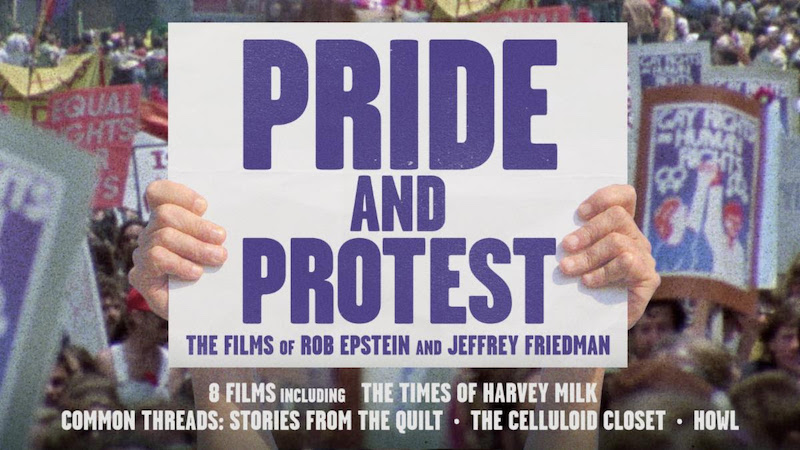
Pride and Protest: The Films of Rob Epstein and Jeffrey Friedman
For decades, the queer experience on-screen was defined by invisibility and marginalization. The trailblazing works of Rob Epstein and Jeffrey Friedman have been instrumental in changing that. Since the 1970s, when he contributed to the Mariposa Collective’s Word Is Out—a landmark documentary that shattered the public silence around LGBTQ lives in America—Epstein has been telling powerful stories that center the gay experience, including the Oscar-winning The Times of Harvey Milk. In the late eighties, he teamed up with Friedman to form the production company Telling Pictures, and the pair’s subsequent triumphs include an Academy Award–winning AIDS documentary (Common Threads: Stories from the Quilt), a groundbreaking revisionist history of Hollywood (The Celluloid Closet), and a narrative retelling of Allen Ginsberg’s 1957 obscenity trial (Howl). Urgent, stirring, and deeply humane, these films represent a major turning point in the cultural conversation surrounding LGBTQ issues and acceptance.
- Word Is Out: Stories of Some of Our Lives, Mariposa Film Group, 1977
- The Times of Harvey Milk, Rob Epstein, 1984
- The AIDS Show, Peter Adair and Rob Epstein, 1986
- Common Threads: Stories from the Quilt, Rob Epstein and Jeffrey Friedman, 1989
- Where Are We? Our Trip Through America, Rob Epstein and Jeffrey Friedman, 1992
- The Celluloid Closet, Rob Epstein and Jeffrey Friedman, 1995
- Paragraph 175, Rob Epstein and Jeffrey Friedman, 2000
- Howl, Rob Epstein and Jeffrey Friedman, 2010
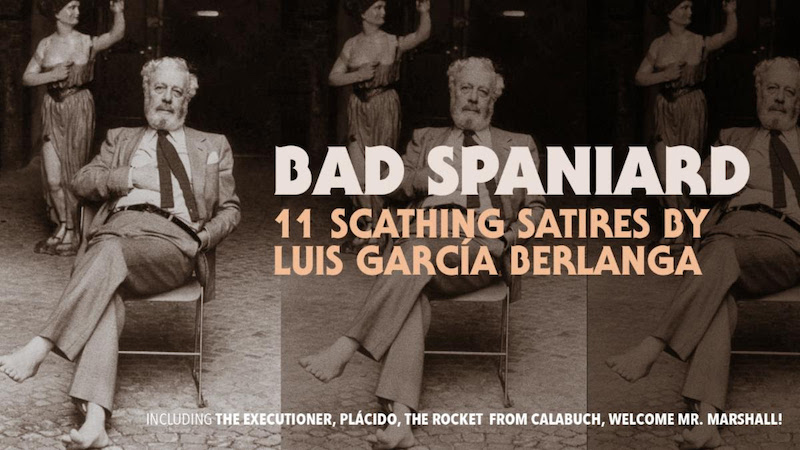
Bad Spaniard: 11 Scathing Satires by Luis García Berlanga
In the wake of the Spanish Civil War, Luis García Berlanga revitalized his country’s film industry by puncturing the sanctimony of Franco-era culture. Though less well-known internationally than his iconoclastic compatriot Luis Buñuel or his filmmaking disciple Pedro Almodóvar, Berlanga—who would have turned one hundred this month—was renowned in his home country for his sardonic, censor-skirting attacks on political repression, economic neglect, and false piety, spiked with ebullient screwball rhythms that delighted mainstream audiences. Overflowing with vivid characters and brilliantly orchestrated moments of absurdist humor, these films and their daring provocations—including Welcome Mr. Marshall!’s sly antinationalist satire, Plácido’s masterful takedown of upper-class hypocrisy, and The Executioner’s caustic attack on capital punishment—led Franco himself to declare, “Berlanga is not a Communist; he is worse than a Communist, he is a bad Spaniard.” A ringing endorsement if there ever was one!
- Welcome Mr. Marshall!, 1953
- Boyfriend in Sight, 1954
- The Rocket from Calabuch, 1956
- Miracles of Thursday, 1957
- Plácido, 1961
- The Executioner, 1963
- La boutique, 1967
- Long Live the Bride and Groom, 1970
- Patrimonio nacional, 1981
- Nacional III, 1982
- Everyone Off to Jail, 1993
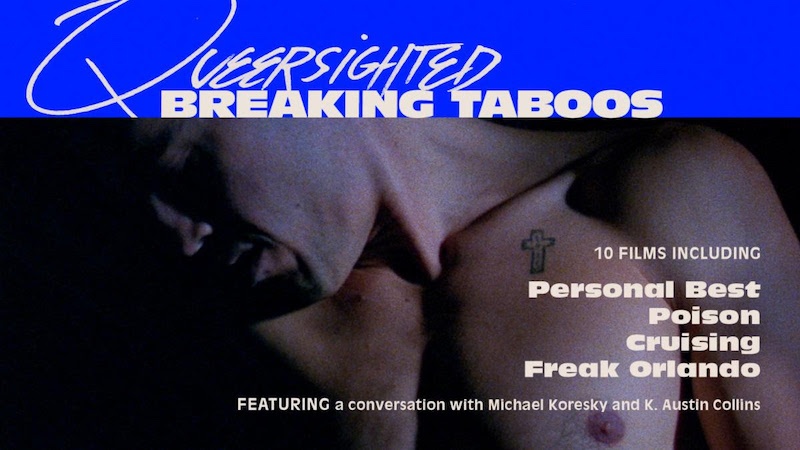
Queersighted: Breaking Taboos
In this fourth edition of our ongoing series Queersighted, which takes a look at film history through a distinctly queer lens, programmer Michael Koresky invites special guest K. Austin Collins (film critic at Rolling Stone) to help select and discuss taboo-breaking queer-themed films that cut across various eras of cinematic history. Spanning more than six decades, from Hollywood’s golden age to midcentury European art-house productions to transgressive modern queer filmmaking, these game-changing and often wildly controversial films managed to break taboos in theme, style, story, or aesthetic practice. Previous editions of Queersighted featured special guest programmers and discussion partners Melissa Anderson, Mayukh Sen, and Farihah Zaman.
- Sylvia Scarlett, George Cukor, 1935
- Olivia, Jacqueline Audry, 1951
- Victim, Basil Dearden, 1961
- Teorema, Pier Paolo Pasolini, 1968
- Cruising, William Friedkin, 1980
- Freak Orlando, Ulrike Ottinger, 1981
- Personal Best, Robert Towne, 1982
- Tongues Untied, Marlon Riggs, 1989
- Poison, Todd Haynes, 1991
- O Fantasma, João Pedro Rodrigues, 2000
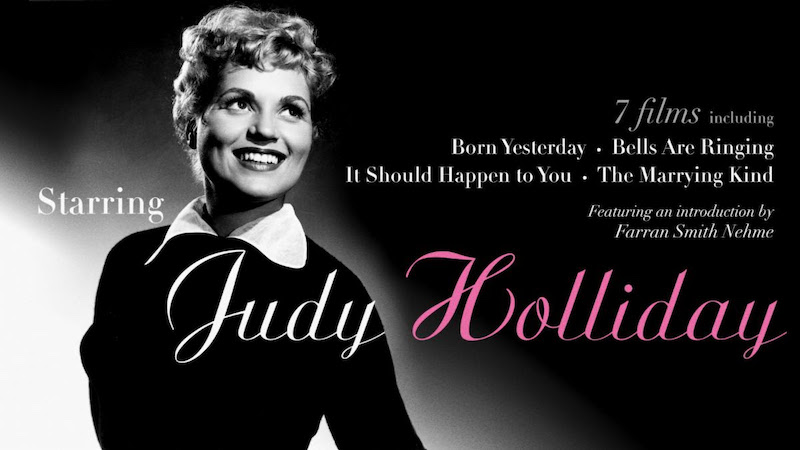
Starring Judy Holliday
Featuring a new introduction by critic Farran Smith Nehme
Born one hundred years ago this month, Judy Holliday was a major star for only a decade, but the precious few screen performances she left behind are marvels of virtuoso comic timing and warmly human characterization. Having achieved renown on Broadway for her performance as the ditzy, squeaky-voiced Billie Dawn in Garson Kanin’s hit play Born Yesterday, Holliday was invited to reprise the role on-screen, becoming an overnight sensation and famously beating out both Bette Davis in All About Eve and Gloria Swanson in Sunset Boulevard for the Academy Award for best actress. Noted for her real-life smarts, Holliday would spend her subsequent career tweaking, and often slyly subverting, the “dumb blonde” image she had established in Born Yesterday, bringing shrewdness and poignancy to her performances in films like George Cukor’s prescient celebrity-culture satire It Should Happen to You and Vincente Minnelli’s musical charmer Bells Are Ringing. The latter proved to be Holliday’s final film before her untimely death at age forty-three cut short the brief but brilliant career of one of the finest comic actors to ever grace the screen.
- Born Yesterday, George Cukor, 1950*
- The Marrying Kind, George Cukor, 1952
- It Should Happen to You, George Cukor, 1954
- Phffft!, Mark Robson, 1954
- Full of Life, Richard Quine, 1956
- The Solid Gold Cadillac, Richard Quine, 1956
- Bells Are Ringing, Vincente Minnelli, 1960
*Available July 1
CRITERION COLLECTION EDITIONS
Premiering June 1
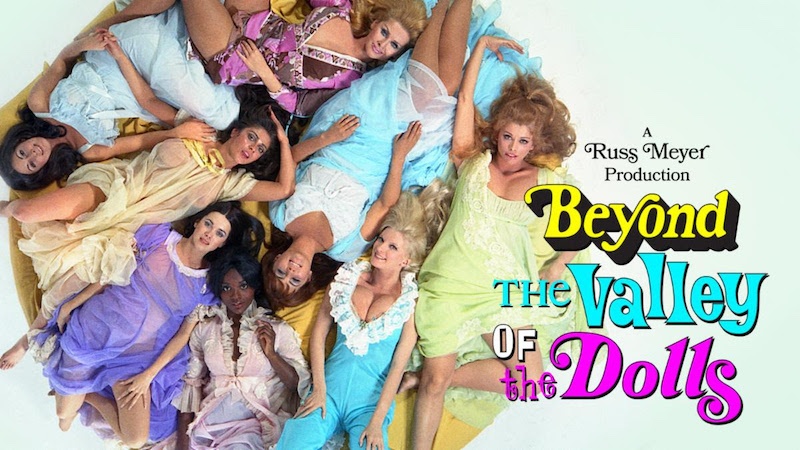
Beyond the Valley of the Dolls: Criterion Collection Edition #836
Transgressive and outrageous, this big-studio version of a debaucherous midnight movie is an addictively entertaining romp from Russ Meyer, one of cinema’s great outsider artists.
SUPPLEMENTAL FEATURES: Audio commentary featuring screenwriter Roger Ebert, an interview with filmmaker John Waters, interviews with the cast, making-of documentaries, and more.

Safe: Criterion Collection Edition #739
Todd Haynes’s profoundly unsettling film functions on multiple levels: as a prescient commentary on self-help culture, as a metaphor for the AIDS crisis, as a drama about class and social estrangement, and as a horror film about what you cannot see.
SUPPLEMENTAL FEATURES: Audio commentary featuring Haynes, actor Julianne Moore, and producer Christine Vachon; a conversation between Moore and Haynes; and more.
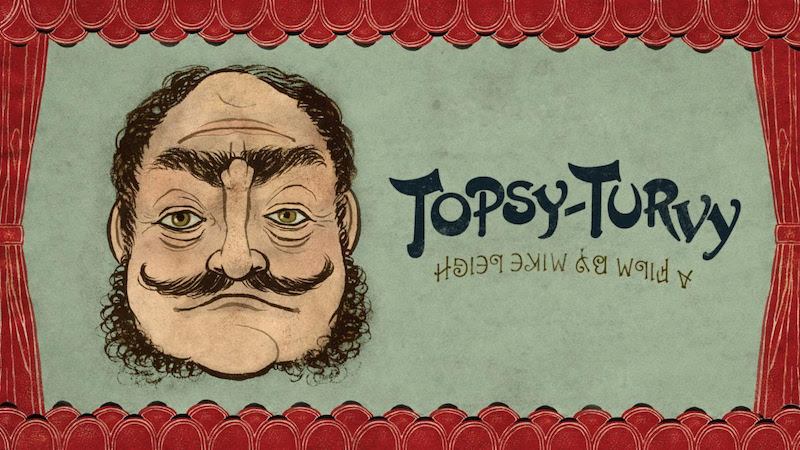
Topsy-Turvy: Criterion Collection Edition #558
The world of Gilbert and Sullivan comes to vivid life in director Mike Leigh’s lushly produced epic about the harsh realities of creative expression.
SUPPLEMENTAL FEATURES: Audio commentary featuring Leigh, a short film by Leigh, deleted scenes, a featurette on the film, and more.
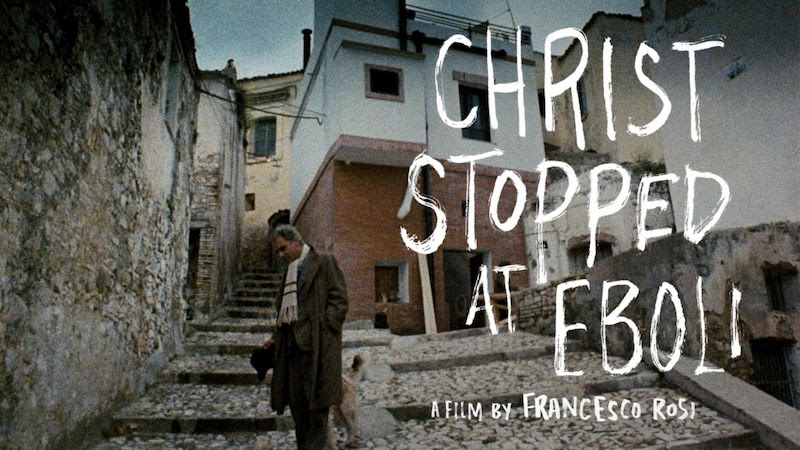
Christ Stopped at Eboli: Criterion Collection Edition #1043
Francesco Rosi’s sublime adaptation of the memoirs of the painter, physician, and political activist Carlo Levi brings a monument of twentieth-century autobiography to the screen with quiet grace and solemn beauty.
SUPPLEMENTAL FEATURES: A documentary on Italian political cinema featuring Rosi and actor Gian Maria Volontè, an interview with writer and translator Michael F. Moore, an excerpt from a documentary featuring Rosi and Levi, and more.
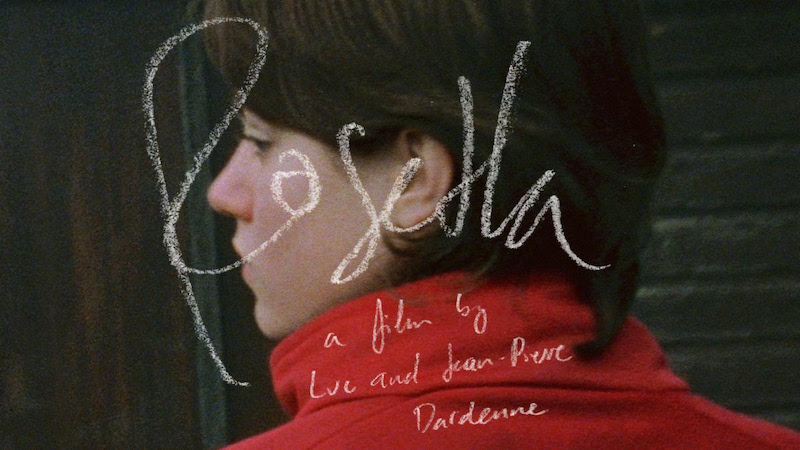
Rosetta: Criterion Collection Edition #621
This swift and simple tale from the Dardenne brothers, winner of the Palme d’Or at Cannes, achieves stunning intimacy with its main character through raw, empathetic camera work.
SUPPLEMENTAL FEATURES: A conversation between the Dardenne brothers and critic Scott Foundas and interviews with actors Émilie Dequenne and Olivier Gourmet.
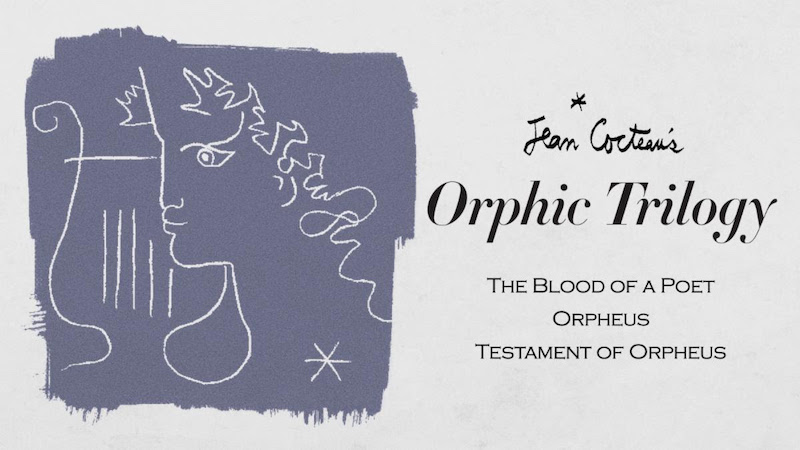
The Orphic Trilogy: Criterion Collection Edition #66
Decadent, subversive, and bristling with artistic invention, this trio of films by Jean Cocteau uses the myth of Orpheus to explore the complex relationships between the artist and his creations, reality and the imagination.
SUPPLEMENTAL FEATURES: Edgardo Cozarinsky’s documentary Jean Cocteau: Autoportrait d’un inconnu and Villa Santo Sospir, a 16 mm color film by Cocteau.
MARTIN SCORSESE’S WORLD CINEMA PROJECT
Premiering June 1
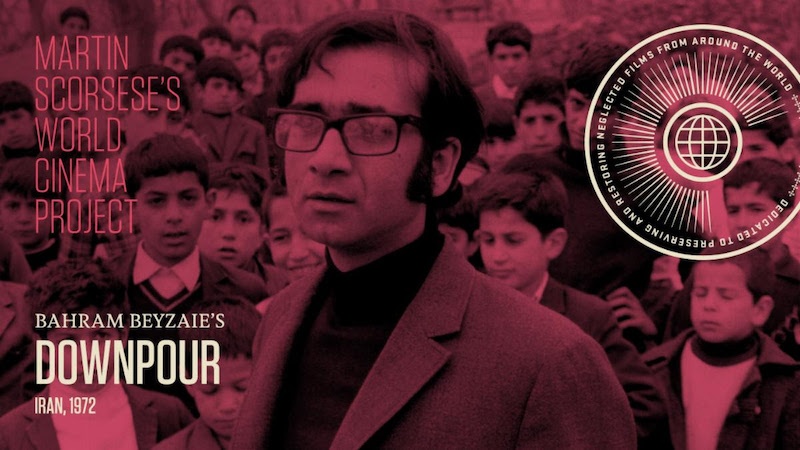
Downpour
Bahram Beyzaie’s exuberant first feature helped usher in the Iranian New Wave, capturing with puckish humor and great tenderness the cultural conflicts coursing through Iran at a pivotal historical moment.
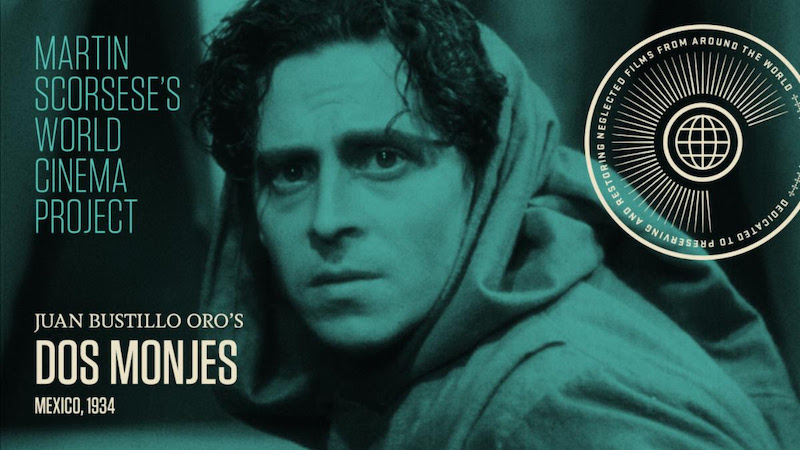
Dos monjes
This vividly stylized, broodingly intense early Mexican sound melodrama by Juan Bustillo Oro hinges on an audacious flashback structure and draws from the language of German expressionism.
EXCLUSIVE STREAMING PREMIERES
Wednesday, June 2
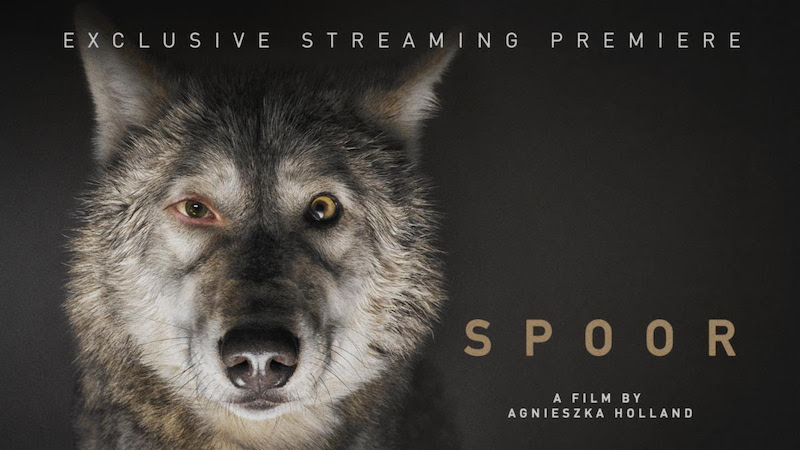
Spoor
Featuring a new interview with director Agnieszka Holland
Mysterious, atmospheric, and darkly humorous, this genre-defying adaptation of Nobel Prize–winning writer Olga Tokarczuk’s novel Drive Your Plow over the Bones of the Dead by the great Agnieszka Holland (Europa Europa, In Darkness) is part murder mystery, part ecofeminist manifesto. Retired civil engineer Janina Duszejko (renowned Polish theater actor Agnieszka Mandat, in a rare film performance) lives a secluded life in a mountain village on the border between Poland and the Czech Republic. She is charismatic and eccentric, a passionate astrologer and a strict vegetarian. One day her beloved dogs disappear. On a snowy winter’s night shortly afterward, she discovers the dead body of her neighbor and, next to it, deer tracks. More men die in a similarly mysterious way. All of them were pillars of the community, and all were avid hunters. Were these men killed by wild animals? Or has someone been provoked to pursue a bloody vendetta? At some point, Duszejko herself comes under suspicion.
Thursday, June 10
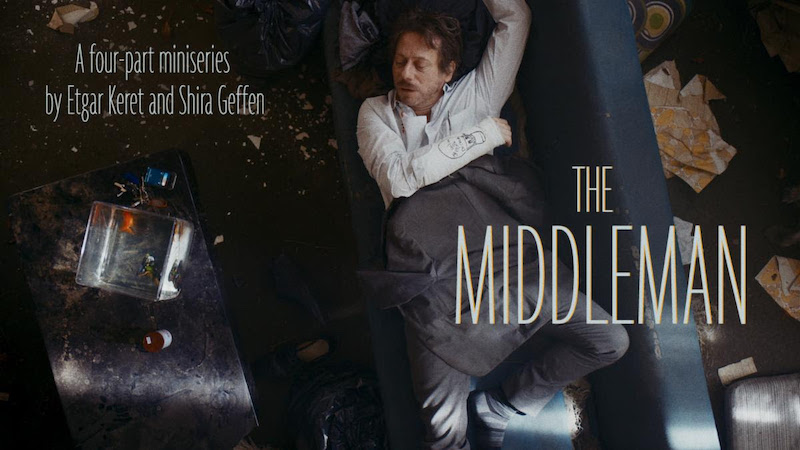
The Middleman
Cocreated and codirected for French television by celebrated Israeli author Etgar Keret and Shira Geffen, The Middleman is a drolly offbeat four-part miniseries set in a captivatingly surreal universe. Mathieu Amalric, the hangdog everyman of Gallic cinema, stars as Olivier, a divorced real estate agent desperate to repair his strained relationship with his daughter and so broke he camps out in the apartments he is supposed to be selling. The death of his mother brings many surprises, including a very unexpected inheritance: a building on the outskirts of Paris. But what at first seems to be a windfall soon turns out to be a run-down money pit that only compounds our hapless hero’s problems. Luckily, Olivier has just the friend to guide him through these troubled times: a talking goldfish who turns out to be a most valuable confidant.
Monday, June 14
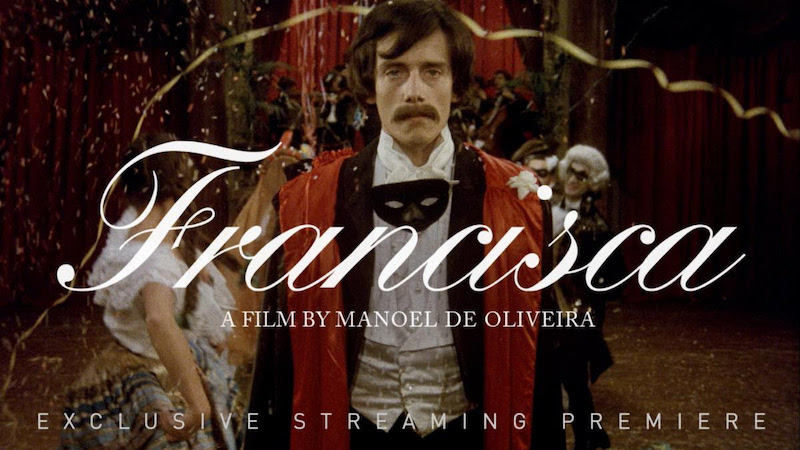
Francisca
A portrait of an obsessive love affair, Manoel de Oliveira’s Francisca is based on a novel by Agustina Bessa-Luís, whose work the legendary director would later adapt twice more. The book’s retelling of a troubled passage in the life of celebrated writer Camilo Castelo Branco (Mário Barroso)—in which his friend José Augusto (Diogo Dória) embarked on a perverse game of marital cat and mouse with Francisca (Teresa Menezes), the woman the novelist loved—led Oliveira to new heights of stylistic imagination. (It helped that Oliveira’s wife, a distant relative of the historical Francisca, gave him access to a cache of the woman’s letters.) With its elaborate title cards, strikingly staged action, evocatively gloomy interiors, and showstopping gala set pieces, Francisca is an exacting, sumptuous cinematic experience that ranks among Oliveira’s crowning achievements.
CRITERION ORIGINALS
Thursday, June 24
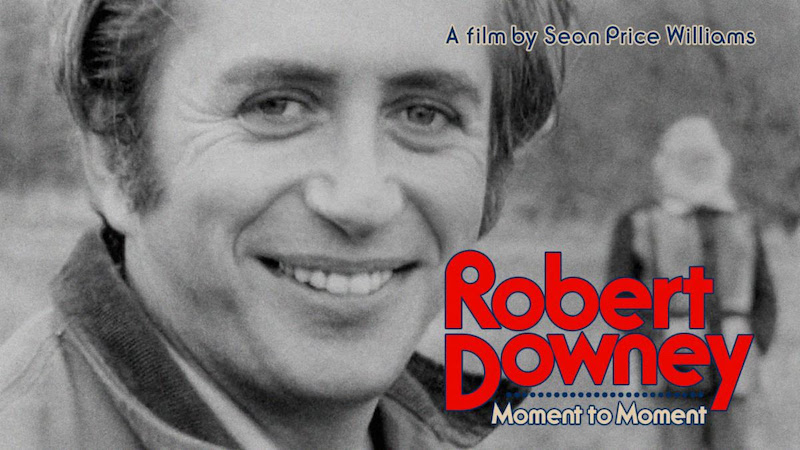
Robert Downey: Moment to Moment
Emerging from the freakiest fringes of the 1960s counterculture, Robert Downey Sr. took the American underground cinema by storm with his wild, weird, and way-out-there send-ups of everything from sex to race relations to religion. In this tribute to one of his filmmaking heroes, acclaimed cinematographer Sean Price Williams (Good Time, Frownland) adopts a style that’s just as out there as his subject, mixing new material shot with Downey, never-before-seen archival footage, and clips from Downey’s boundary-pushing films, a selection of which—including the gonzo corporate satire Putney Swope and surrealist acid western Greaser’s Palace—are presented here.
- Babo 73, 1964
- Chafed Elbows, 1966
- No More Excuses, 1968
- Putney Swope, 1969
- Greaser’s Palace, 1972
- Two Tons of Turquoise to Taos Tonight, 1975
THREE DIMENSIONS
Thursday, June 17

Three by John Waters
In the 1970s, something strange bubbled up from the Baltimore underground, something shocking, transgressive, outrageously funny, and oh-so-queer. With their demented blend of scuzz and camp, the early films of John Waters quickly became cult sensations and made his singular star and muse, the larger-than-life Divine, a counterculture icon. This selection of three of Waters’ most blasphemous provocations—the sideshow shocker Multiple Maniacs, notoriously perverse black comedy Pink Flamingos, and lurid melodrama Female Trouble—are testaments to the warped and wickedly funny imagination that have made him the reigning Pope of Trash.
- Multiple Maniacs, 1970
- Pink Flamingos, 1972
- Female Trouble, 1974
Monday, June 21
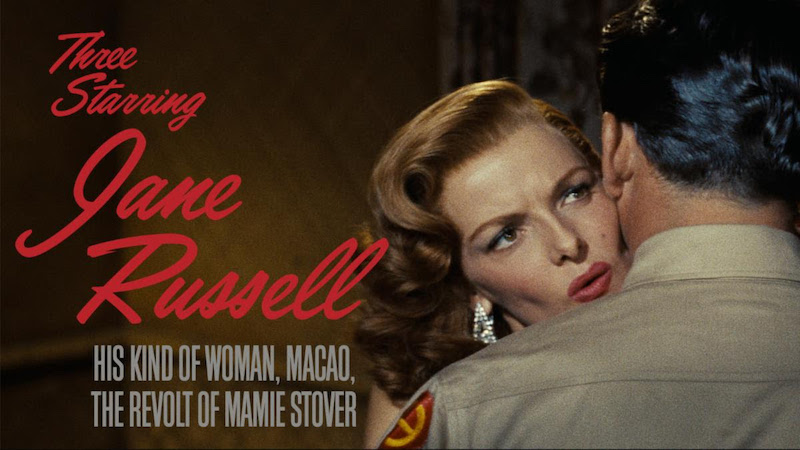
Three Starring Jane Russell
Born one hundred years ago this June, Jane Russell rose to fame under the Svengali-like influence of Howard Hughes, who exploited her sex appeal to turn his production of The Outlaw into a cultural sensation. More than just the provocative pinup of Hughes’s fantasies, however, Russell soon proved to be an intelligent, sharp-witted performer who projected a brassy toughness and down-to-earth likability that made her one of the most popular stars of the 1940s and ’50s. This trio of highlights from Russell’s heyday brings together the fascinatingly offbeat noirs His Kind of Woman and Macao, both costarring Robert Mitchum, alongside Raoul Walsh’s punchy melodrama The Revolt of Mamie Stover, with Russell at her best as an ambitious sex worker determined to make her fortune in Hawaii.
- His Kind of Woman, John Farrow, 1951
- Macao, Josef von Sternberg, 1952
- The Revolt of Mamie Stover, Raoul Walsh, 1956
TRUE STORIES
Monday, June 7

The Queen
Go behind the scenes of the 1967 Miss All-American Camp Beauty Pageant with this groundbreaking documentary that introduced audiences to the world of competitive drag.
Monday, June 14
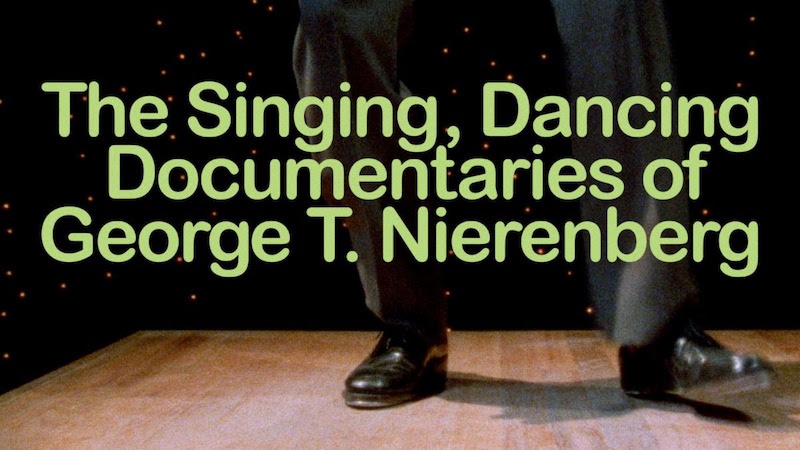
The Singing, Dancing Documentaries of George T. Nierenberg
An infectious sense of joy lights up the documentaries of George T. Nierenberg, whose films are essential records of African American cultural achievement. With his touchstone documentary No Maps on My Taps and its follow-up About Tap, Nierenberg helped to revitalize interest in the art of tap dancing by spotlighting legendary dancers like Howard “Sandman” Sims, Bunny Briggs, and Chuck Green. In Say Amen, Somebody, the filmmaker tells the story of gospel music with similar passion, capturing soul-shaking performances from greats such as Thomas A. Dorsey, known as the Father of Gospel Music, and Willie Mae Ford Smith.
- No Maps on My Taps, 1979
- Say Amen, Somebody, 1982
- About Tap, 1985
More documentaries featured in this month’s programming:
- Pride and Protest: The Films of Rob Epstein and Jeffrey Friedman
- Symbiopsychotaxiplasm Take One, William Greaves, 1968
- Ethnic Notions, Marlon Riggs, 1986
- Tongues Untied, Marlon Riggs, 1989
- Daddy and the Muscle Academy, Ilppo Pohjola, 1991
- Non, Je Ne Regrette Rien (No Regret), Marlon Riggs, 1993
- #Blackmendream, Shikeith, 2014
WOMEN FILMMAKERS
Wednesday, June 9
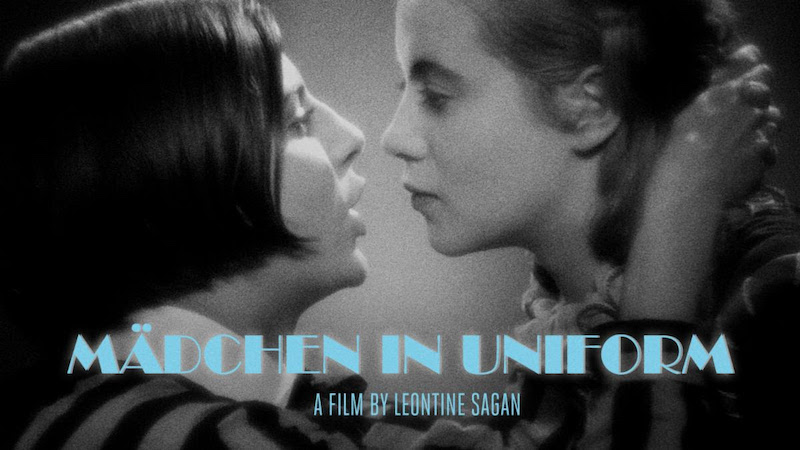
Mädchen in Uniform
Featuring audio commentary by filmmaker Jenni Olson
Leontine Sagan’s landmark of queer cinema is both a groundbreaking lesbian love story and powerful antifascist statement.
Wednesday, June 16

Western
Valeska Grisebach’s complex, tantalizingly open-ended tale of culture clash in rural Bulgaria toys masterfully with the mythic genre conventions evoked by its title.
Wednesday, June 23
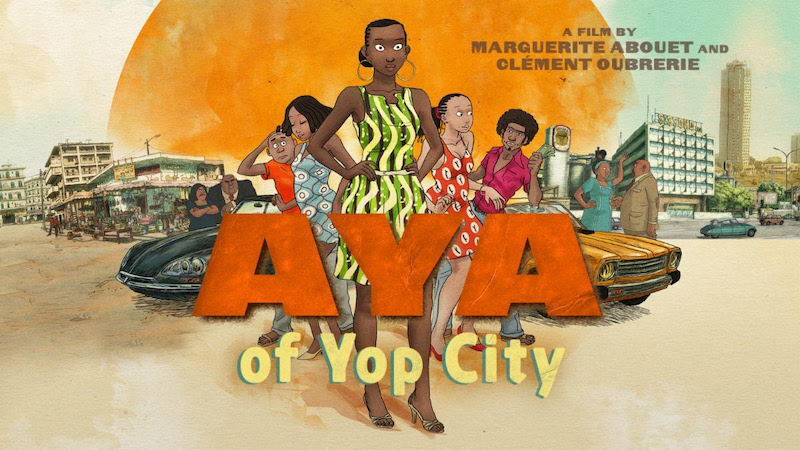
Aya of Yop City
Marguerite Abouet codirects this spirited adaptation of her best-selling series of graphic novels set against the backdrop of 1970s Côte d’Ivoire.
Wednesday, June 30
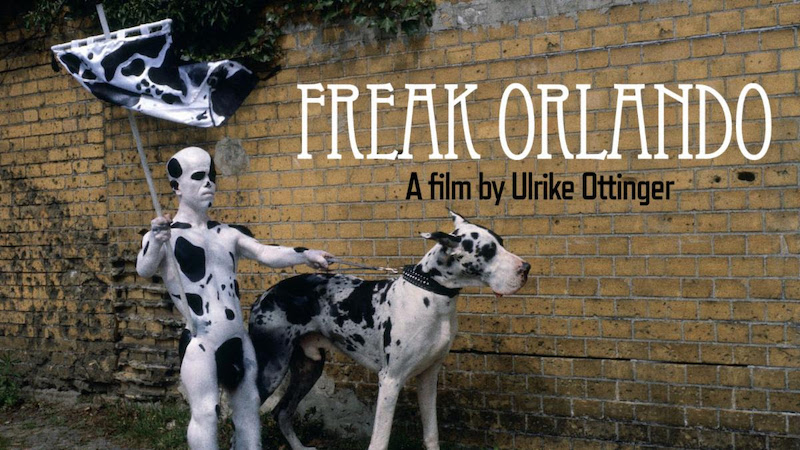
Freak Orlando
Ulrike Ottinger transforms Virginia Woolf’s queer feminist classic Orlando into an outrageously campy and carnivalesque historical pageant.
More women filmmakers featured in this month’s programming:
- Olivia, Jacqueline Audry, 1951
- Word Is Out: Stories of Some of Our Lives, Mariposa Film Group, 1977
- Losing Ground, Kathleen Collins, 1982
- Daughters of the Dust, Julie Dash, 1991
- Love You More, Sam Taylor-Johnson, 2008
- Me the Terrible, Josephine Decker, 2012
- Spoor, Agnieszka Holland, 2017
- The Middleman, Shira Geffen and Etgar Keret, 2020
SATURDAY MATINEES
Saturday, June 5
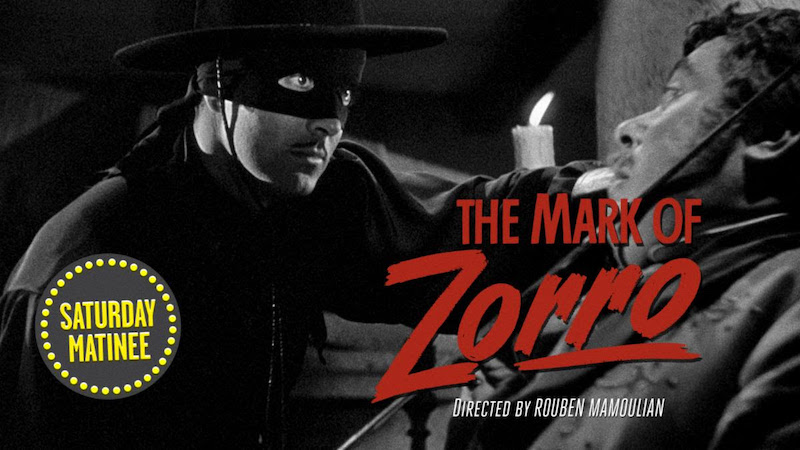
The Mark of Zorro
A roguishly charming Tyrone Power dons the black mask for this stylish swashbuckling classic.
Saturday, June 12
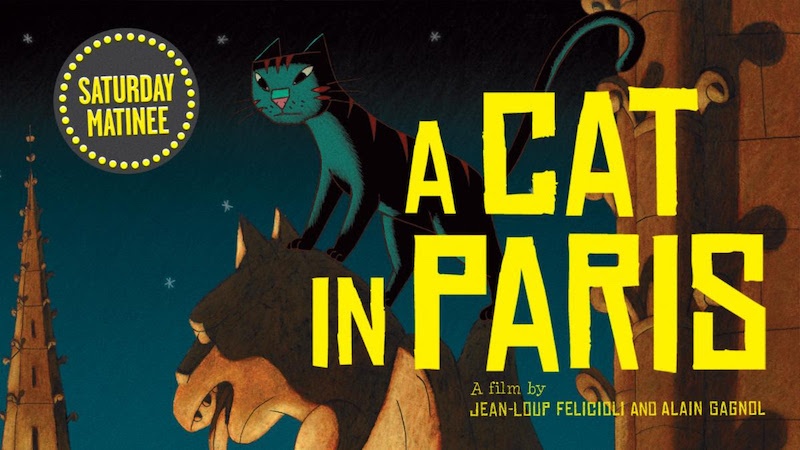
A Cat in Paris
Nominated for an Academy Award, this jazzy, imaginatively stylized triumph of hand-drawn animation is a rich and humorous love letter to classic noir and gangster films.
Saturday, June 19
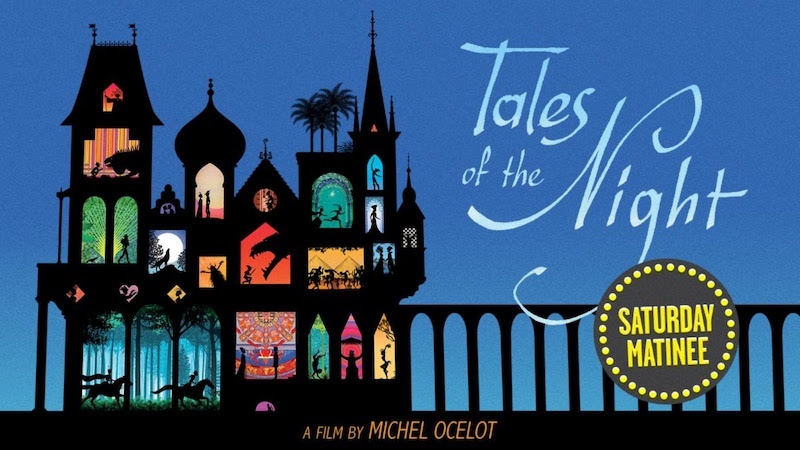
Tales of the Night
Michel Ocelot pays homage to early-animation pioneer Lotte Reiniger in this colorfully kaleidoscopic fantasy.
Saturday, June 26

Heidi
Pint-sized sunbeam Shirley Temple shines in this touching musical adaptation of the Alpine-set children’s-book classic.
SHORT-FILM PROGRAMS
Tuesday, June 1
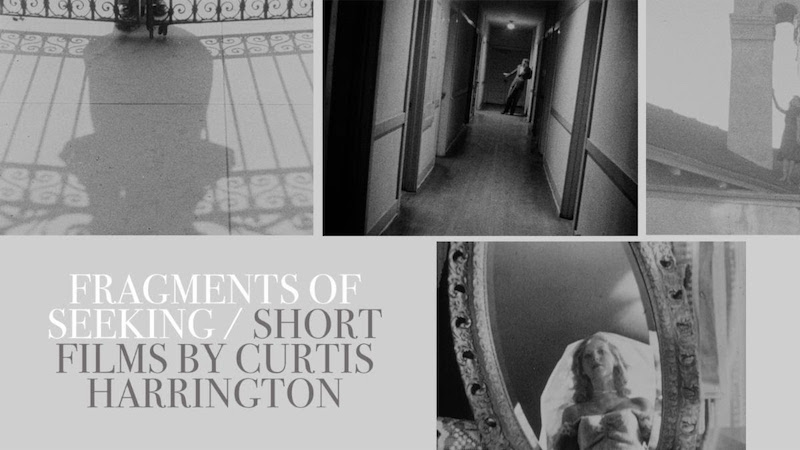
Fragments of Seeking: Short Films by Curtis Harrington
One of the most important avant-garde filmmakers of the 1940s and ’50s, trailblazing queer director Curtis Harrington began making films as a teenager and would go on to carve out a unique career specializing in offbeat cult horror films like Night Tide and Whoever Slew Auntie Roo? Deeply surreal, intuitive, and owing much to the writings of Edgar Allan Poe, these remarkable short films—made by Harrington between the ages of fourteen and seventy-six—employ striking compositions and dreamlike imagery to explore themes of queer alienation, death, and the occult. Awash in a mood of macabre decadence, they are key forerunners of the movement that would come to be known as the New Queer Cinema.
- The Fall of the House of Usher, 1942
- Fragment of Seeking, 1946
- On the Edge, 1949
- Picnic, 1949
- The Assignation, 1953
- The Wormwood Star, 1956
- The Four Elements, 1966
- Usher, 2000
Tuesday, June 8
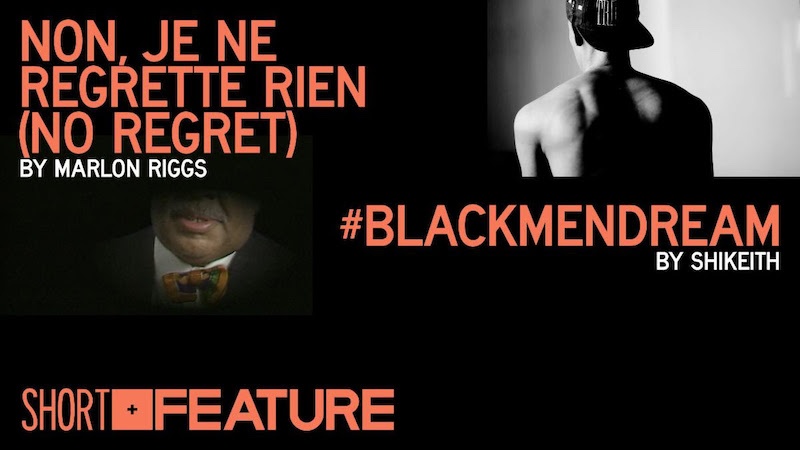
Black Masculinity Reframed
Non, Je Ne Regrette Rien (No Regret) and #Blackmendream
Two courageously vulnerable documentaries shatter the taboos and stigmas surrounding Black masculinity.
Tuesday, June 15

City Girls
Me the Terrible and Zazie dans le métro
The big city becomes a playground of imagination for two spirited girls in a pair of whimsical fantasias bursting with anarchic charm.
Tuesday, June 22
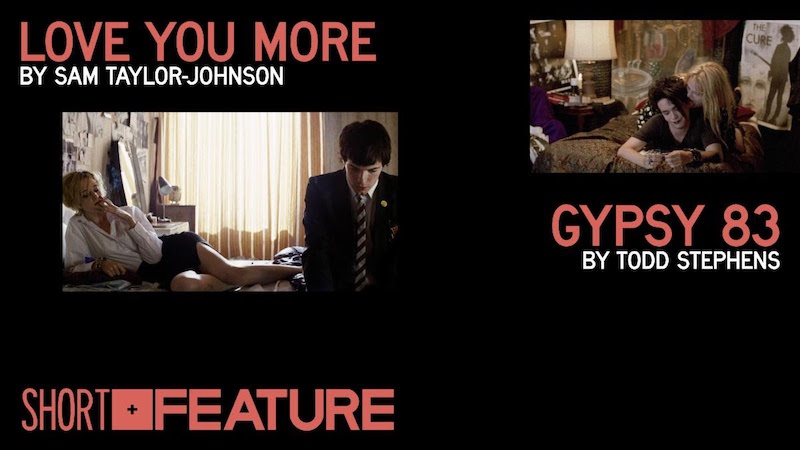
Living for the Music
Love You More and Gypsy 83
Punks, goths, and misfits of the world unite for these music-driven odes to fandom, counterculture rebellion, and young love.
Tuesday, June 29
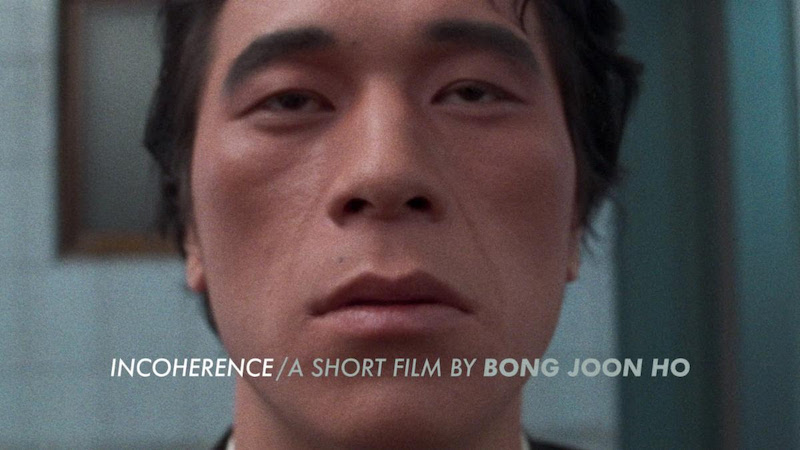
Incoherence
This black-comic student film from Parasite director Bong Joon-ho displays the formal control and class-conscious, satiric sensibility that would become his trademarks.
DOUBLE FEATURES
Friday, June 4
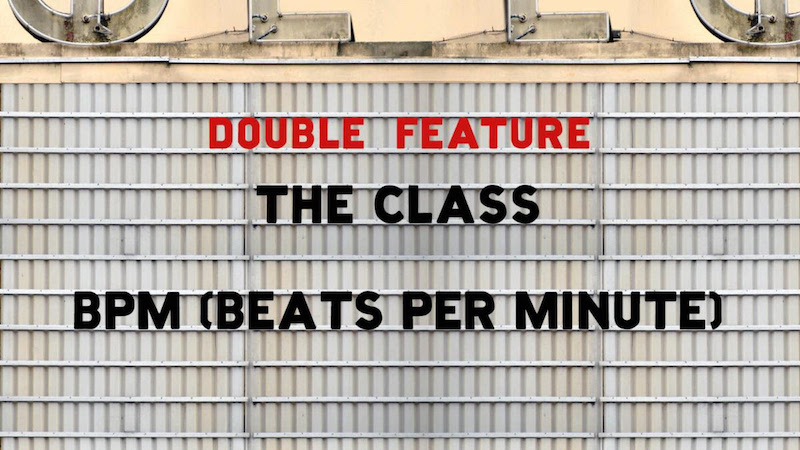
French Connections
BPM (Beats Per Minute) and The Class
The personal gets political in these trenchant films from screenwriter turned director Robin Campillo that offer at once intimate and panoramic views of French society.
Friday, June 11
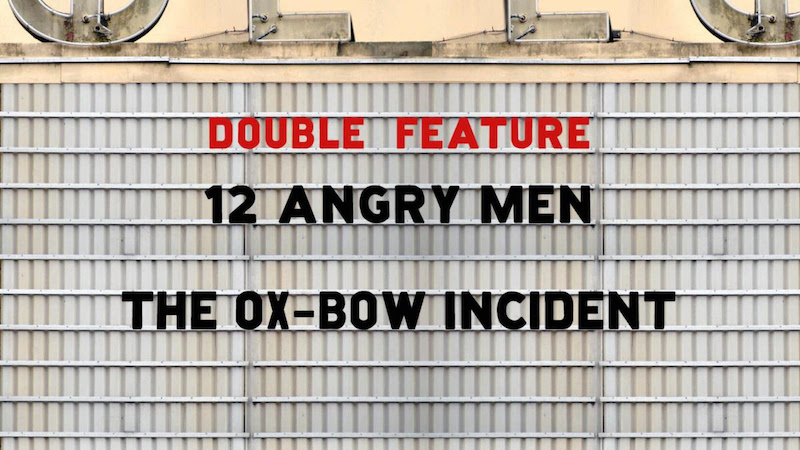
Double Feature: Truth, Justice, and the Fonda Way
The Ox-Bow Incident and 12 Angry Men
Henry Fonda brings his righteous, upstanding everyman persona to these two classic, morally complex explorations of crime, punishment, and human fallibility.
Friday, June 18
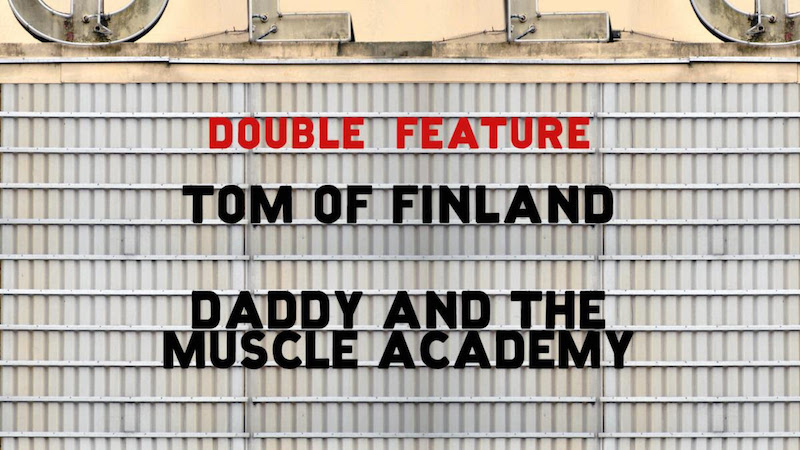
Double Feature: Leather Bound
Tom of Finland and Daddy and the Muscle Academy
Delve into the kinky world of path-breaking artist Tom of Finland, whose drawings of leather-clad studs helped shape the fantasies of a generation of gay men.
Friday, June 25
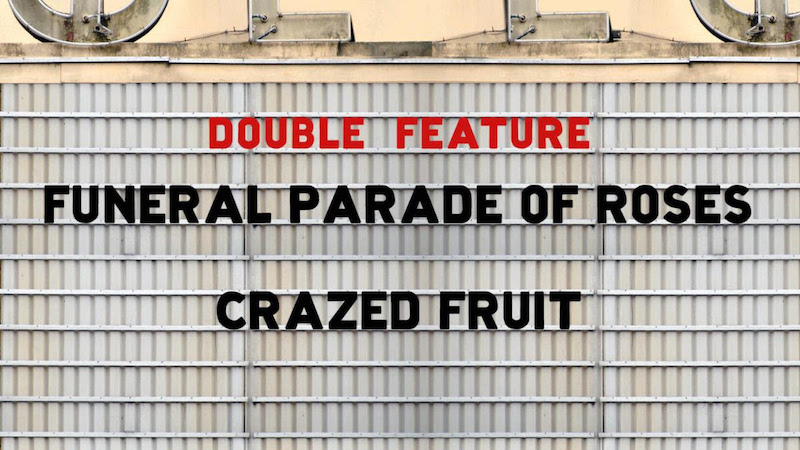
Double Feature: Japan Gone Wild
Funeral Parade of Roses and Crazed Fruit
Take a wild ride through Japanese counterculture with two touchstones of the country’s iconoclastic New Wave: a landmark of queer and trans representation by Toshio Matsumoto and Ko Nakahira’s anarchic portrait of the postwar sexual revolution.
Complete list of films premiering on the Criterion Channel this month:
- #Blackmendream, Shikeith, 2014
- 12 Angry Men, Sidney Lumet, 1957
- About Tap, George T. Nierenberg, 1985
- The AIDS Show, Peter Adair and Rob Epstein, 1986
- The Assignation, Curtis Harrington, 1953
- Aya of Yop City, Marguerite Abouet and Clément Oubrerie, 2013 *
- Bells Are Ringing, Vincente Minnelli, 1960
- Beyond the Valley of the Dolls, Russ Meyer, 1970
- The Blood of a Poet, Jean Cocteau, 1930
- BPM (Beats Per Minute), Robin Campillo, 2017
- A Cat in Paris, Alain Gagnol and Jean-Loup Felicioli, 2010 *
- The Celluloid Closet, Rob Epstein and Jeffrey Friedman, 1995
- Christ Stopped at Eboli, Francesco Rosi, 1979
- Clash By Night, Fritz Lang, 1952
- The Class, Laurent Cantet, 2008 *
- Common Threads: Stories from the Quilt, Rob Epstein and Jeffrey Friedman, 1989
- Cruising, William Friedkin, 1980
- Daddy and the Muscle Academy, Ilppo Pohjola, 1991
- Dos monjes, Juan Bustillo Oro, 1934
- Downpour, Bahram Beyzai, 1972
- The Fall of the House of Usher, Curtis Harrington, 1942
- Female Trouble, John Waters, 1974
- The Four Elements, Curtis Harrington, 1966
- Fragment of Seeking, Curtis Harrington, 1947
- Francisca, Manoel de Oliveira, 1981
- Freak Orlando, Ulrike Ottinger, 1981
- Full of Life, Richard Quine, 1956
- Funeral Parade of Roses, Toshio Matsumoto, 1969
- Greaser’s Palace, Robert Downey Sr., 1972
- Gypsy 83, Todd Stephens, 2001
- Hands Across the Table, Mitchell Leisen, 1935
- Heidi, Allan Dwan, 1937
- His Kind of Woman, John Farrow, 1951
- Howl, Rob Epstein, Jeffrey Friedman, 2010
- In Name Only, John Cromwell, 1939
- Incoherence, Bong Joon-ho, 1994
- It Should Happen to You, George Cukor, 1954
- Macao, Josef von Sternberg, 1952
- Mädchen in Uniform, Leontine Sagan and Carl Froelich, 1931
- The Mark of Zorro, Rouben Mamoulian, 1940
- The Marrying Kind, George Cukor, 1952
- Men in War, Anthony Mann, 1957
- The Middleman, Shira Geffen and Etgar Keret, 2020
- Mr. & Mrs. Smith, Alfred Hitchcock, 1941
- My Man Godfrey, Gregory La Cava, 1936
- No Man of Her Own, Mitchell Leisen, 1950
- No Maps on My Taps, George T. Nierenberg, 1979
- Nothing Sacred, William A. Wellman, 1937
- O Fantasma, João Pedro Rodrigues, 2000
- Olivia, Jacqueline Audry, 1951
- On the Edge, Curtis Harrington, 1949
- The Ox-Bow Incident, William A. Wellman, 1943
- Paragraph 175, Rob Epstein and Jeffrey Friedman, 2000
- Personal Best, Robert Towne, 1982
- Phffft, Mark Robson, 1954
- Picnic, Curtis Harrington, 1949
- Pink Flamingos, John Waters, 1972
- Poison, Todd Haynes, 1991
- The Queen, Frank Simon, 1968
- The Revolt of Mamie Stover, Raoul Walsh, 1956
- Rosetta, Luc Dardenne and Jean-Pierre Dardenne, 1999
- Safe, Todd Haynes, 1995
- Say Amen, Somebody, George T. Nierenberg, 1982
- Scanners, David Cronenberg, 1981
- The Solid Gold Cadillac, Richard Quine, 1956
- Spoor, Agnieszka Holland, 2017
- Sylvia Scarlett, George Cukor, 1935
- Tales of the Night, Michel Ocelot, 2011 *
- Testament of Orpheus, Jean Cocteau, 1959
- Tom of Finland, Dome Karukoski, 2017
- Topsy-Turvy, Mike Leigh, 1999
- True Confession, Wesley Ruggles, 1937
- Usher, Curtis Harrington, 2000
- Vigil in the Night, George Stevens, 1940
- Virtue, Edward Buzzell, 1932
- Western, Valeska Grisebach, 2017
- We Will Always Be Here, Monique Walton, 2013
- Where Are We? Our Trip Through America, Rob Epstein and Jeffrey Friedman, 1992
- Word Is Out: Stories of Some of Our Lives, Mariposa Film Group, 1977
- The Wormwood Star, Curtis Harrington, 1956
*Available in the U.S. only


